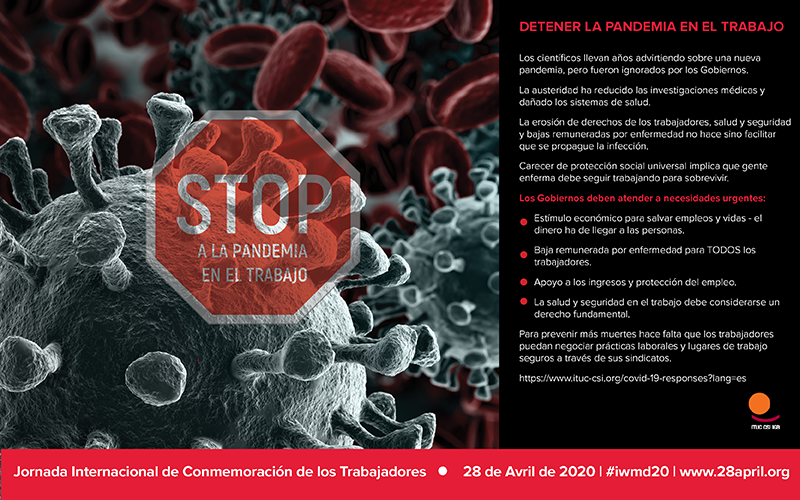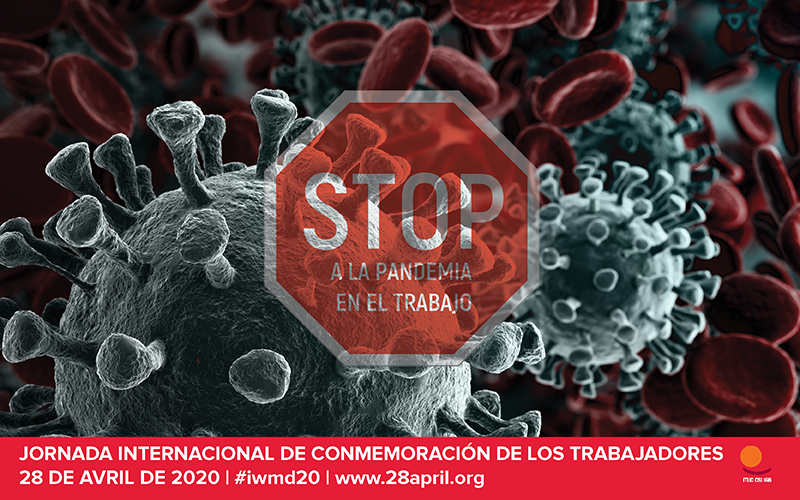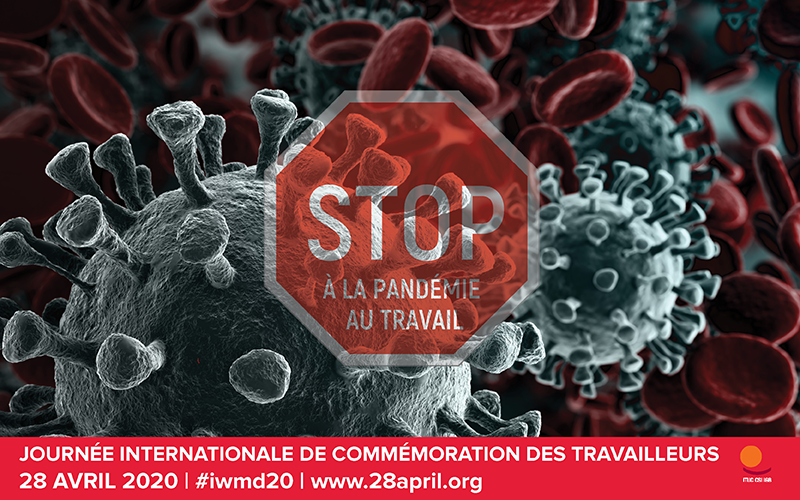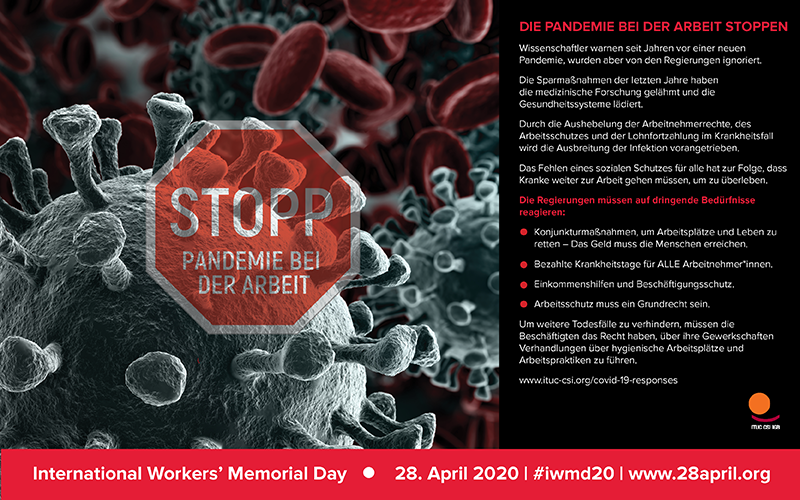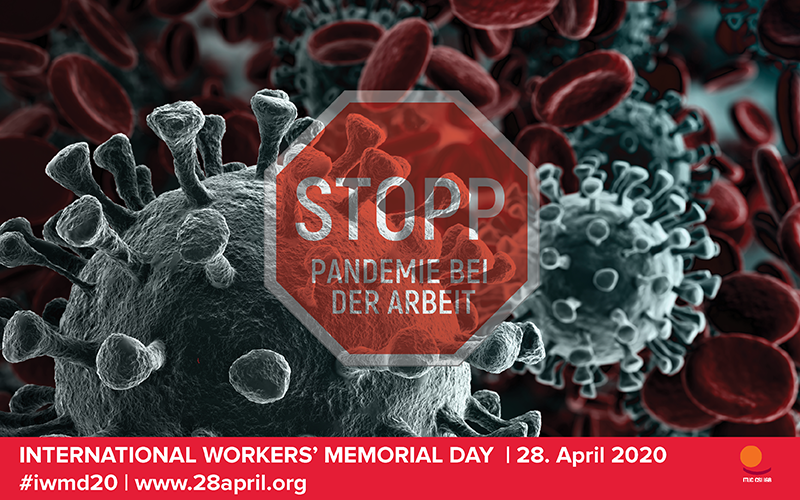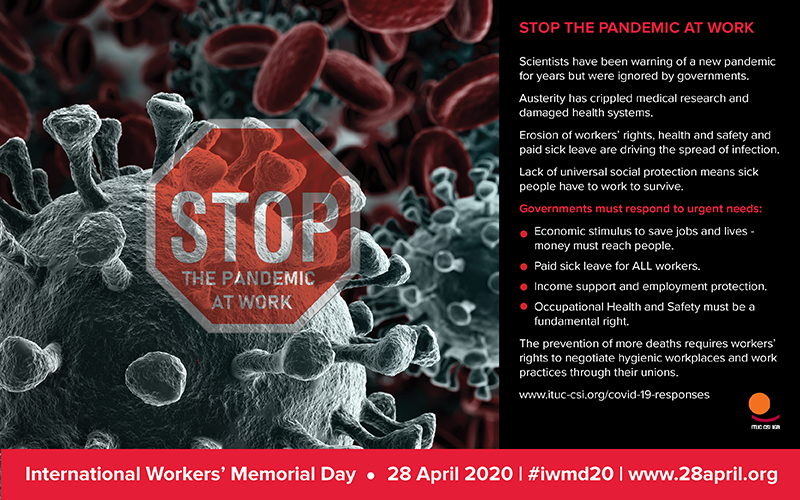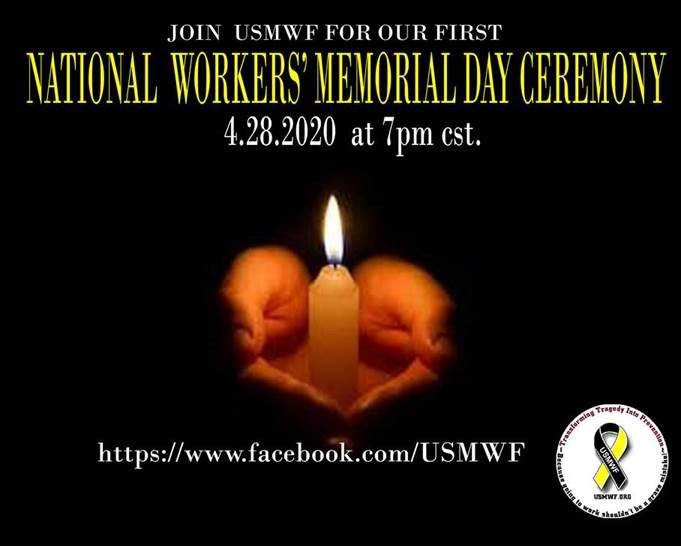 From AFL-CIO director of health and safety, Rebecca Reindel
From AFL-CIO director of health and safety, Rebecca Reindel
Colleagues,
Workers Memorial Day, April 28, is just around the corner. This year is especially challenging for everyone, as we are in the midst of the evolving COVID-19 pandemic — a major crisis for workers, our families, our country and the world. We know each of you and your communities are struggling in different ways. Our hearts are with you.
It is more important now than ever for the labor movement to commemorate those we have lost on the job, and to renew our fight for stronger safety and health protections and the need to speak up for workers’ rights. This Workers Memorial Day, the theme is: “Protect Our Rights. Speak Up for Safe Jobs.” AFL-CIO President Trumka’s letter announcement in online since we cannot mail it to you this year. Please join us this April 28 to honor the victims of workplace injury and illness and to keep on fighting for the promise of safe jobs for all workers.
In the midst of the COVID-19 crisis, we have fought back against the Trump administration, who has weakened worker protections at the very time they need to be strengthened to protect our communities, who has allowed industry associations to hold back common sense measures that would prevent workplace exposure to this virus, who did not heed the labor movement’s call early and did not act quickly enough to secure testing, workplace plans and protective equipment in the U.S. Last week, the first U.S. health care workers died from COVID-19 because they did not have the protections they needed to care for patients at work. We are hearing about flight attendant and manufacturing worker COVID-19 fatalities, too. This is criminal. This could have been prevented.
We must continue to fight back. We cannot and will not let the Trump administration leave workers unprotected as they battle this disaster. We will not let them turn back the clock and destroy the progress we have made to keep workers safe.
Please use the resources below when planning for this year’s Workers Memorial Day. It may be different than other years, but commemorating this day is more crucial than ever. Please reach out to us with any questions, concerns, comments along the way.
Materials:
AFL-CIO website at: www.aflcio.org/WorkersMemorialDay
Please also access these flyers in English and Spanish and poster and sticker artwork directly here. We want you to use these digital resources since hard copies are not available at this time.
Please note that our building is currently closed so we are not currently filling and shipping orders. However, we are keeping track of orders that come in so please feel free to place them. Once our building reopens, we will reach out to you for confirmation that your order is still needed, at which time it will be processed.
Workers Memorial Day Events:
Planning events will be different this year because we probably won’t be gathering in person. That’s okay. We still urge you to get involved and organize actions, activities, or observances for your workplaces and communities to highlight the toll of job injuries and deaths; demand that elected officials put workers’ well-being above corporate interests; and demand jobs that are safe, healthy and pay fair wages. This year, as every year, we will organize to make it clear that the labor movement will defend the right of every worker to a safe job and fight until that promise is fulfilled.
Even if we are not getting together in person, trade unionists around the country and globe will organize our communities and workplaces to observe Workers Memorial Day. Alternative ideas for events, actions and activities are in our flyer, available in English and Spanish. We also would like to hear about new and innovative ways you’re planning events this year, given social distancing measures.
Please share your event with us here.
Workers Memorial Day Toolkit:
Coming soon! To assist you with your planned events or activities, we soon will be distributing our Workers Memorial Day Toolkit. It will include talking points, sample materials for media outreach, worker safety and health facts, state-by-state safety and health data, COVID-19 facts and other information. Please use this in your commemoration and advocacy efforts.
How to reach out to us about Workers Memorial Day:
oshmail@aflcio.org or 202-637-5305
Hashtags you can use to build solidarity online around Workers Memorial Day:
#IWMD2020 #WMD2020 #1uSafety

